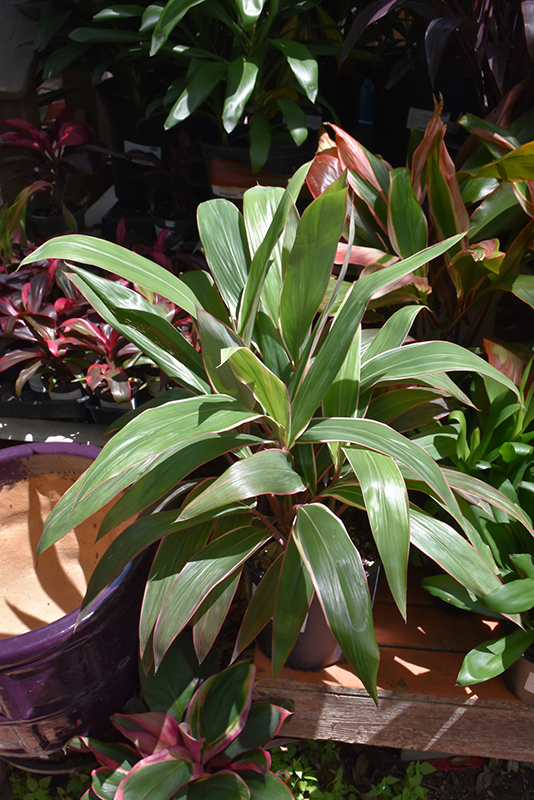Pink Diamond Hawaiian Ti Plant
Cordyline terminalis 'Pink Diamond'
Height: 5 feet
Spread: 4 feet
Sunlight:
![]()
Other Names: syn. Cordyline fruticosa, Good Luck Plant
Description:
Vibrant green leaves with white edges and pink highlights; spectacular when massed on the landscape; perfect for adding a lush, tropical look to bright indoor spaces
Features & Attributes
Pink Diamond Hawaiian Ti Plant is primarily valued in the home for its ornamental upright and spreading habit of growth. Its attractive glossy narrow leaves emerge bluish-green, turning grayish green in color with distinctive white edges and tinges of pink throughout the year. The pink stems are very effective and add to the plant's interest.
This is an open multi-stemmed evergreen houseplant with an upright spreading habit of growth. Its relatively coarse texture stands it apart from other indoor plants with finer foliage. This plant should never be pruned unless absolutely necessary, as it tends not to take pruning well.
Planting & Growing
When grown indoors, Pink Diamond Hawaiian Ti Plant can be expected to grow to be about 5 feet tall at maturity, with a spread of 4 feet. It grows at a medium rate, and under ideal conditions can be expected to live for approximately 10 years. This houseplant should be situated in a location that that gets indirect sunlight at most, although it will usually require a more brightly-lit environment than what artificial indoor lighting alone can provide. It does best in average to evenly moist soil, but will not tolerate standing water. The surface of the soil shouldn't be allowed to dry out completely, and so you should expect to water this plant once and possibly even twice each week. Be aware that your particular watering schedule may vary depending on its location in the room, the pot size, plant size and other conditions; if in doubt, ask one of our experts in the store for advice. It is not particular as to soil type or pH; an average potting soil should work just fine.
There are many factors that will affect the ultimate height, spread and overall performance of a plant when grown indoors; among them, the size of the pot it's growing in, the amount of light it receives, watering frequency, the pruning regimen and repotting schedule. Use the information described here as a guideline only; individual performance can and will vary. Please contact the store to speak with one of our experts if you are interested in further details concerning recommendations on pot size, watering, pruning, repotting, etc.
-- THIS IS A HOUSEPLANT AND IS NOT MEANT TO SURVIVE THE WINTER OUTDOORS IN OUR CLIMATE --

